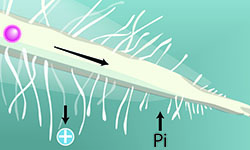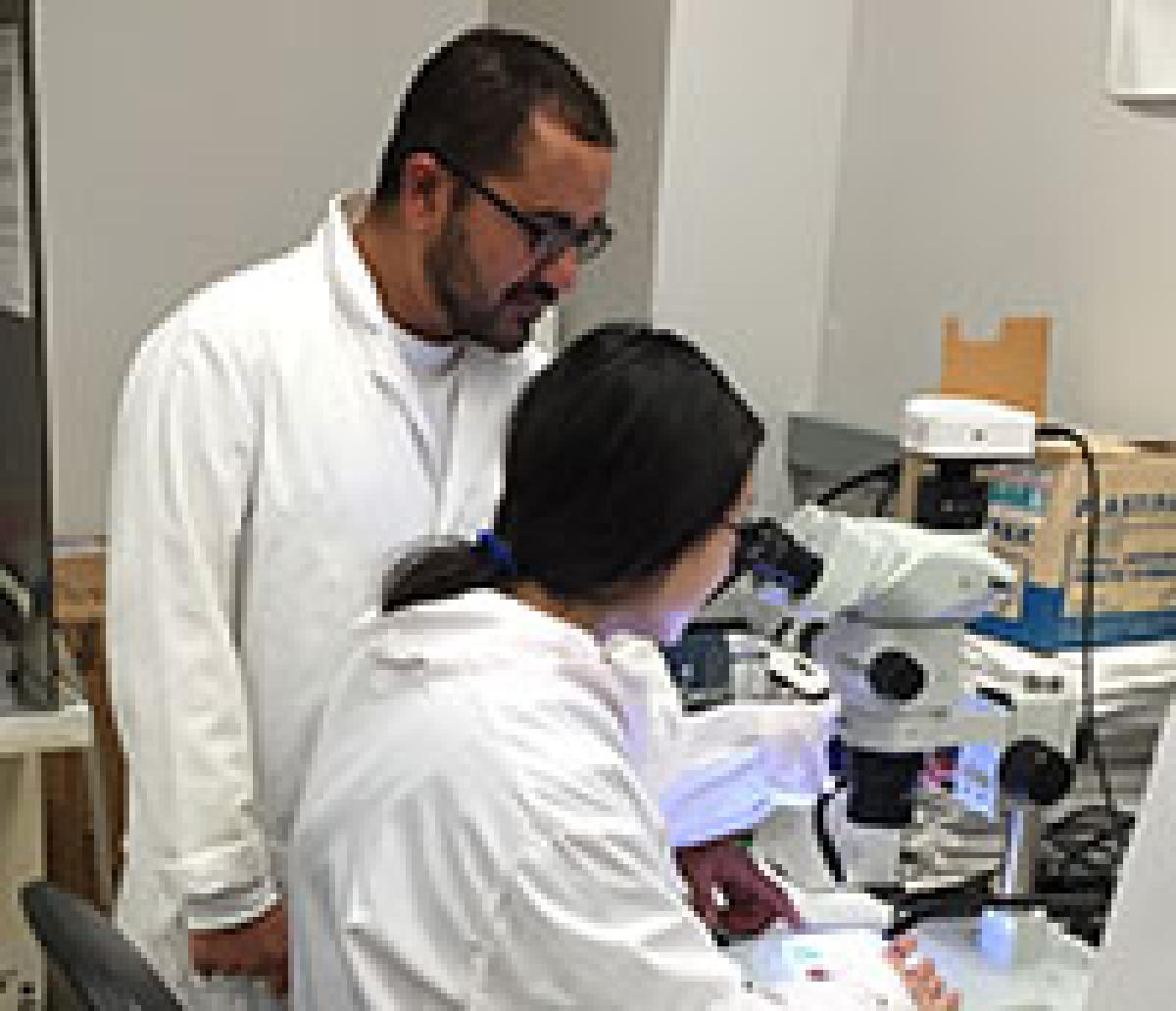A Special Proton Pump

Just like other pumps, the Proton Pyrophosphatase pump usually moves hydrogen ions uphill. It gets its energy to do this by breaking down molecules known as pyrophosphates into two smaller phosphate molecules.
However, if the pump is in an area where the concentration gradient is too high, with too many hydrogen ions on one side, the pump works in the opposite direction. There, the pump moves ions downhill, and it combines two phosphate molecules into one molecule of pyrophosphate. Here, pyrophosphate can be used to make energy (ATP). Energy can then be used by a stronger proton pump to move protons out and make a stronger gradient.
A Prized Pump
One of the effects of this is that more sugars end up being passed into neighboring cells. Sugars are needed for plant growth, so in effect, this helps move sugars around the plant without using more materials than normal.

To use this to our benefit, scientists have modified some plants to have more of these special Proton Pyrophosphatase pumps. These plants can supply extra sugars to different tissues. This makes the plants grow longer roots (which are good for absorbing nutrients like phosphorus) and grow more leafy tissues as well. So with a boost of these pumps, we can easily have larger plants that can make more fruits.
As there may be a phosphate shortage in the near future, a boost like this could be very important for growing crops.
Read more about: Phosphate Fix
Bibliographic details:
- Article: A Special Proton Pump
- Author(s): Dr. Biology
- Publisher: Arizona State University School of Life Sciences Ask A Biologist
- Site name: ASU - Ask A Biologist
- Date published:
- Date accessed:
- Link: https://askabiologist.asu.edu/special-proton-pump
APA Style
Dr. Biology. (). A Special Proton Pump. ASU - Ask A Biologist. Retrieved from https://askabiologist.asu.edu/special-proton-pump
Chicago Manual of Style
Dr. Biology. "A Special Proton Pump". ASU - Ask A Biologist. . https://askabiologist.asu.edu/special-proton-pump
Dr. Biology. "A Special Proton Pump". ASU - Ask A Biologist. . ASU - Ask A Biologist, Web. https://askabiologist.asu.edu/special-proton-pump
MLA 2017 Style

In the Gaxiola lab at Arizona State University, two researchers work to study the effects of the Proton Pyrophosphatase pump.
Be Part of
Ask A Biologist
By volunteering, or simply sending us feedback on the site. Scientists, teachers, writers, illustrators, and translators are all important to the program. If you are interested in helping with the website we have a Volunteers page to get the process started.

